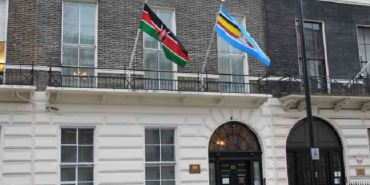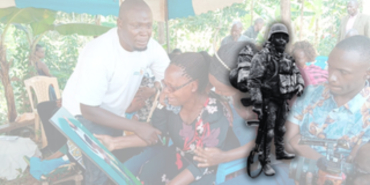Raid in India Rescues 14 Kenyan Women from Prostitution Ring

Indian authorities have successfully dismantled a prostitution ring in Hyderabad, India, rescuing 17 East African women, including 14 Kenyans.
The operation, conducted by the Anti-Human Trafficking Unit, was prompted by a public tip-off and resulted in the arrest of three suspects accused of orchestrating the illegal activity. The raid, which took place on August 23, targeted a three-storey building in the Kondapur area. Investigations reveal that the ring leader had established online connections with foreign nationals, enticing them with promises of accommodation and other amenities. The women, who had entered India on tourist and medical visas—some of which had expired—chose to remain in the country. Reports indicate that the prostitution ring charged clients between 4,602 and 30,682 Kenyan shillings per day.
During the raid, law enforcement confiscated various items, including mobile phones, condoms, hookah pots, HIV testing kits, and sex toys. While the suspects were remanded, the rescued women were relocated to a shelter. This incident occurs against the backdrop of recent warnings issued by the Kenyan government cautioning its citizens against pursuing dubious employment opportunities in South Asian countries. On August 16, a government notice highlighted the plight of numerous Kenyans and other East African nationals who had been lured to Myanmar, Laos, and Cambodia under the guise of English-language teaching positions, only to find themselves in conditions akin to slavery.
The Kenyan Embassy in Thailand has reported an escalation of this problem, exacerbated by recruiters employing other Kenyans to entice their compatriots with false promises. The embassy has collaborated with local authorities to rescue approximately 140 Kenyans and other East Africans. Alarmingly, some Kenyans in Myanmar have reportedly become complicit in human trafficking, acting as agents for criminal syndicates and deceiving fellow citizens with fraudulent job advertisements.
Victims are often lured by false promises of better opportunities abroad, only to find themselves trapped in exploitative situations. Combating this issue requires international cooperation and comprehensive strategies that address root causes such as poverty, lack of education, and limited economic prospects. In recent years, technology has played a dual role in human trafficking, both facilitating criminal activities and aiding law enforcement efforts to dismantle trafficking networks. Public awareness campaigns and educational programs have become crucial in empowering individuals to recognize and report suspicious activities.














Add new comment